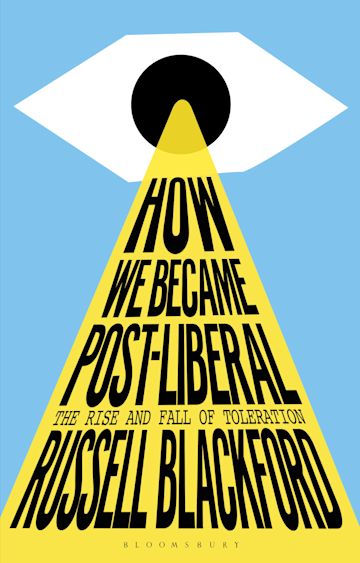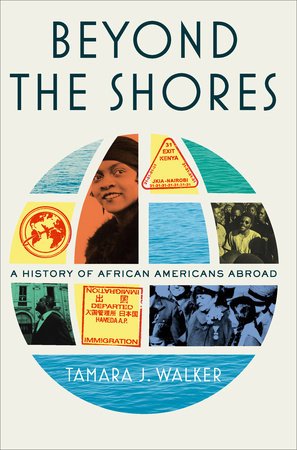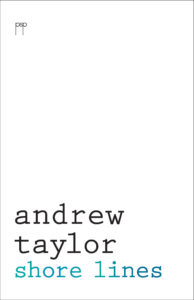 Blackford’s knowledge is wide-reaching and he constructs his arguments carefully, with evidence that encompasses history, law, and philosophy, making it clear that the first step in combating intolerance is to understand how and why it arises.
Blackford’s knowledge is wide-reaching and he constructs his arguments carefully, with evidence that encompasses history, law, and philosophy, making it clear that the first step in combating intolerance is to understand how and why it arises.
Author:
Giveaway!
 We have a copy of Sweet & Savory Life by Yecenia Currie to give away!
We have a copy of Sweet & Savory Life by Yecenia Currie to give away!
To win, sign up for our Free Newsletter on the right-hand side of the site and enter via the newsletter. Winner will be chosen by the end of June from subscribers who enter via the newsletter. Good luck!
A review of Beyond the Shores by Tamara J Walker

A review of Heimlich Unheimlich by Hazel Smith and Sieglinde Karl-Spence
 The short book is beautifully written and visually arresting, combining memoir, imagery, fiction, poetry, and the linking of two very different lives that meld and weave together like the names they give themselves – Hessian and Muslin.
The short book is beautifully written and visually arresting, combining memoir, imagery, fiction, poetry, and the linking of two very different lives that meld and weave together like the names they give themselves – Hessian and Muslin.
A review of The Hand of Fate: a review of Unbound by Sinead McGuigan
 Every story, every journey has a beginning, a middle, and an end. So with this fine book of poems. Its end is a reaching out. To whom? Herself, to other women, to humanity.
Every story, every journey has a beginning, a middle, and an end. So with this fine book of poems. Its end is a reaching out. To whom? Herself, to other women, to humanity.
Boxed in to Today: A review of Apartmentalized by Dan Flore II
 Paradoxically, the poet is at home and not at home, as alienated from himself as he is from his apartment and the complex of apartments in these poems. As a sequence they have a structure of irony. The poet’s self-conflict is expressed in his descriptions of neighbors and people who work at the complex.
Paradoxically, the poet is at home and not at home, as alienated from himself as he is from his apartment and the complex of apartments in these poems. As a sequence they have a structure of irony. The poet’s self-conflict is expressed in his descriptions of neighbors and people who work at the complex.
A review of The Leaves by Jacqueline Rule
 Jacqueline Rule makes good use of her legal experience in Luke’s story, which is tragic, spotlighting just how broken the foster system he ends up cycling through is, or how brutal the legal detention system, and the way in which it traumatises rather than helps the young people caught in it.
Jacqueline Rule makes good use of her legal experience in Luke’s story, which is tragic, spotlighting just how broken the foster system he ends up cycling through is, or how brutal the legal detention system, and the way in which it traumatises rather than helps the young people caught in it.
A review of Shore Lines by Andrew Taylor
 In all of Taylor’s poems the imagery is rich and detailed. Some of the poems take reflective turns, with themes of nostalgia and memory, often juxtaposing the strength of nature with human vulnerability and the persistence of memory.
In all of Taylor’s poems the imagery is rich and detailed. Some of the poems take reflective turns, with themes of nostalgia and memory, often juxtaposing the strength of nature with human vulnerability and the persistence of memory.
Cherry Blossoms Outside the Madhouse: A review of Splinter of the Moon by Wayne Russell
 Throughout, and within the poet, there is the ideal and the real. Often the real falls short, but sometimes as in “Room,” “That Defining Moment,” and “That Poem for Her” the real is on an equal plane with the ideal. While there are dream images in poems, there is also reality, the reality of the poet being honest with himself and his readers.
Throughout, and within the poet, there is the ideal and the real. Often the real falls short, but sometimes as in “Room,” “That Defining Moment,” and “That Poem for Her” the real is on an equal plane with the ideal. While there are dream images in poems, there is also reality, the reality of the poet being honest with himself and his readers.
A Review of Ready or Not by Cara Bastone
 From her corner in Brooklyn, Cara Bastone is able to highlight a new take on a New York romance in her new novel, Ready or Not, featuring the twists and turns of a surprise pregnancy, friendship struggles, and the bustling life of a career.
From her corner in Brooklyn, Cara Bastone is able to highlight a new take on a New York romance in her new novel, Ready or Not, featuring the twists and turns of a surprise pregnancy, friendship struggles, and the bustling life of a career.